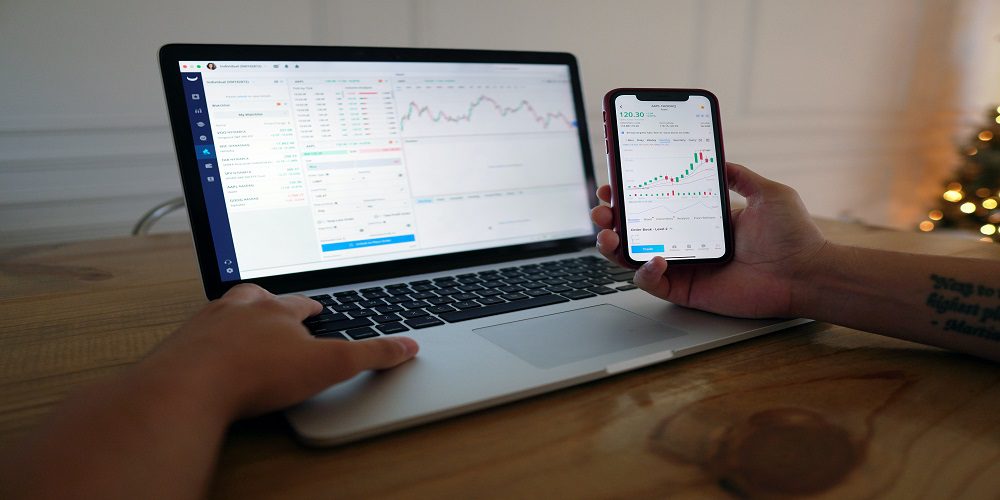Are you curious to know just how many companies call Dubai Financial Market (DFM) their home? Well, get ready to be blown away! In this eye-opening blog post, we are going to unveil the shocking numbers and uncover the truth behind the bustling marketplace that is DFM. From multinational giants to innovative startups, we will delve into the depths of this financial hub and reveal why it continues to captivate investors from around the globe.
Introduction
The Dubai Financial Market (DFM) is one of the leading financial markets in the Middle East, with a history dating back to 2000. It is a stock exchange located in Dubai, United Arab Emirates (UAE), and is regulated by the Securities and Commodities Authority (SCA). The DFM plays a crucial role in the economic growth and development of the UAE by providing an efficient platform for trading securities.
The market operates under Shariah principles, making it attractive for Islamic investors. It offers various financial instruments such as stocks, bonds, mutual funds, and real estate investment trusts (REITs). The DFM also has strict regulations and guidelines in place to ensure fair trading practices and protect investors’ interests.
How many companies are listed in the DFM?
The Dubai Financial Market (DFM) is one of the leading stock exchanges in the Middle East and North Africa region. It has been a major contributor to the economic growth of Dubai, attracting both local and international investors. As of September 2021, the DFM had a total market capitalization of AED 2.5 trillion and listed over 200 companies from various sectors.
So, how many companies are actually listed on the DFM? The answer may surprise you.
As mentioned earlier, there are currently over 200 companies listed on the DFM. This number includes both domestic and foreign companies. Out of these, approximately 60% are domestic or UAE-based companies, while the remaining 40% are foreign companies.
These listed companies represent a diverse range of industries such as banking, telecommunications, real estate, healthcare, retail, and energy, among others. Some notable names include Emirates NBD Bank, Emaar Properties, Dubai Islamic Bank, Etisalat Group, and Dubai Electricity and Water Authority (DEWA).
It is important to note that not all publicly traded entities in Dubai are listed on the DFM. There is another stock exchange called Nasdaq Dubai, which also operates under the supervision of the Dubai Financial Services Authority (DFSA). However, only certain types of securities, such as stocks or bonds, can be listed on Nasdaq Dubai, while other asset classes, like derivatives, can only be traded on DFM.
Breakdown of companies by sector
The Dubai Financial Market (DFM) is the premier stock exchange in the United Arab Emirates, providing a platform for local and international companies to raise capital and trade their shares. As of 2021, there are a total of 60 companies listed on the DFM, with a combined market capitalization of over AED 600 billion.
One interesting aspect of these listed companies is the breakdown by sector. This gives us a deeper understanding of the industries represented in the DFM and can provide valuable insights for investors looking to diversify their portfolios. Let’s take a closer look at how these companies are categorized by sector:
1. Banking & Finance:
This sector is one of the largest on the DFM, comprising 25% of all listed companies. It includes major banks such as Emirates NBD, Dubai Islamic Bank, and Mashreq Bank, as well as financial institutions like Dubai Investments and Shuaa Capital.
2. Real Estate:
As expected from a booming city like Dubai, real estate plays a significant role in the DFM, with 22% representation. This includes developers like Emaar Properties and DAMAC Properties, as well as real estate investment trusts (REITs) such as Emirates REIT and ENBD REIT.
3. Telecommunications:
Telecom is another prominent sector on the DFM, accounting for about 17% of all listed companies. Etisalat Group and du Telecom are two major players dominating this industry.
Comparison to other stock exchanges
The Dubai Financial Market (DFM) is one of the leading stock exchanges in the Middle East, attracting investors from all over the world. With a strong focus on transparency and regulation, it has become a popular choice for companies looking to list their stocks and raise capital.
However, how does DFM compare to other stock exchanges in terms of listings? Let’s take a closer look at some key factors that differentiate DFM from its global counterparts.
1. Number of Listed Companies
Firstly, let’s talk about the number of companies listed on DFM. As of 2020, there are approximately 80 companies listed on the exchange, including some of the largest and most well-known corporations in the UAE, such as Emirates NBD and Emaar Properties. This may seem relatively small compared to other major exchanges like the New York Stock Exchange (NYSE) which boasts over 2,300 listings. However, it should be noted that DFM is still a relatively young exchange compared to others and has experienced steady growth since its inception in 2000.
2. Market capitalization
Another important factor when comparing stock exchanges is market capitalization, which is essentially the total value of all listed company stocks combined. As of December 2019, DFM had a total market capitalization of around $93 billion USD. This puts it behind other major exchanges like the NYSE with $21 trillion USD and the Hong Kong Stock Exchange with $5 trillion USD.
Top Companies Listed on the DFM
The Dubai Financial Market (DFM) is one of the leading financial markets in the Middle East and is home to some of the biggest and most successful companies in the region. With over 200 listed companies, it offers investors a diverse range of investment opportunities across various sectors such as banking, real estate, telecommunications, insurance, and many more.
In this section, we will take a closer look at some of the top companies that are currently listed on the DFM and how they have performed over the years.
1. Emirates NBD
With a market capitalization of AED 52 billion (as of May 2021), Emirates NBD is not only one of the largest banks in Dubai but also one of the top companies listed on DFM. The bank provides a wide range of financial products and services to individuals as well as businesses. It has consistently delivered strong financial results over the years and has been awarded several prestigious titles, such as “Best Bank in the UAE” by Global Finance magazine.
2. Emaar Properties
Emaar Properties is a global property development company known for its iconic projects such as Burj Khalifa, the tallest building in the world. With a market capitalization of AED 25 billion (as of May 2021), it is one of the most valuable real estate companies listed on DFM. Emaar’s success can be attributed to its focus on delivering high-quality projects that cater to both local and international buyers.
3. Etisalat
Etisalat is the largest telecommunications operator in the Middle East and North Africa region. With a market capitalization of AED 137 billion (as of May 2021), it is one of the top-performing companies on DFM. The company has a strong presence in 16 countries, providing a wide range of services such as mobile and fixed-line telecommunications, internet, and digital services.
4. Dubai Islamic Bank
Dubai Islamic Bank (DIB) is the first Islamic bank to be established in Dubai and is currently the largest Sharia-compliant bank in the country. With a market capitalization of AED 36 billion (as of May 2021), it is one of the top banks listed on DFM. DIB offers a wide range of Sharia-compliant banking products and has been recognized as one of the leading Islamic finance institutions globally.
5. Emirates Integrated Telecommunications Company (du)
Du is another major telecommunications company listed on DFM with a market capitalization of AED 17 billion (as of May 2021). It offers a variety of mobile, fixed-line, broadband, and television services to customers in the UAE
Future Outlook for the DFM
The future outlook for the Dubai Financial Market (DFM) is promising, with several initiatives and developments in place to further strengthen its position as a leading financial market in the region. In recent years, the DFM has seen significant growth and expansion, attracting both local and international investors.
One of the key factors contributing to the positive outlook for the DFM is the country’s strong economic performance. With a stable economy and continuous efforts towards diversification, Dubai remains an attractive destination for investments. This, coupled with favorable government policies and regulations, creates a conducive environment for businesses to thrive in the DFM.
Another major development that bodes well for the future of DFM is its ongoing integration with Nasdaq Dubai. This merger aims to create a larger exchange platform that offers more diversified investment opportunities for investors. By combining their strengths, both exchanges are expected to enhance liquidity levels and attract more listings from various sectors.
Furthermore, plans are underway to introduce new financial products such as options trading, short selling, and derivatives on DFM by 2022. These innovative instruments will help increase trading activity on the exchange while providing investors with more diverse investment options.
Conclusion
The Dubai Financial Market (DFM) has been a crucial component of Dubai’s economy since its establishment in 2000. With over two decades of operation, the DFM has proven to be a key player in driving economic growth, attracting foreign investments, and promoting financial stability in the region.































